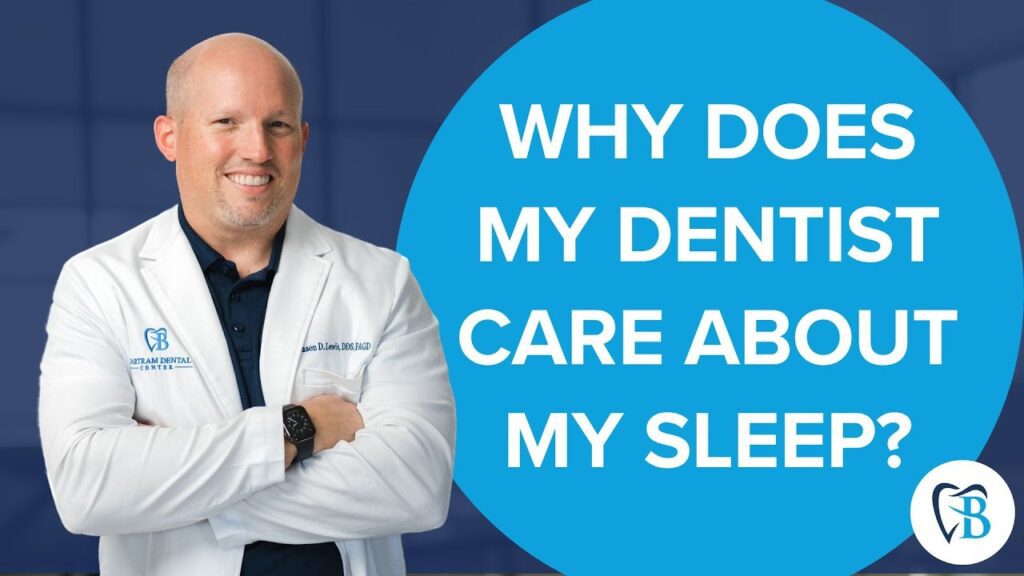Have you ever wondered why a dentist would ask about your sleep habits? The link between the health of your mouth and the quality of your sleep is stronger than most realize.
When you sleep, many things happen in your mouth. Some people clench or grind their teeth, leading to wear and damage. Often, this is due to disturbances in breathing during sleep.
Sleep is essential for overall well-being, but its significance goes beyond feeling refreshed. When patients visit a dentist, it’s not only the teeth that are assessed. The health of the entire mouth, including the airway, holds vital clues to a patient’s sleep patterns. Clenching and grinding during sleep can lead to significant wear on the teeth. But why does this happen?
It’s not just about stress or irregular sleeping positions. Sleep-disturbed breathing can be the main culprit behind this. As the airway gets affected during sleep, it can cause interruptions leading to these dental issues. The importance of this connection becomes clear when realizing that the mouth is a key gateway to understanding overall health.
Understanding Obstructive Sleep Apnea
Snoring is often laughed off or seen as a mere bedtime annoyance. However, it’s crucial to recognize that snoring is not just an ordinary sound. It can be an early warning sign of a potentially serious condition known as obstructive sleep apnea (OSA).
OSA occurs when there’s a temporary obstruction in the airway during sleep, causing pauses in breathing. These pauses can be brief but frequent, leading to fragmented sleep. The potential dangers are more than just daytime fatigue. Untreated OSA has been linked to heart attacks, strokes, and dementia as well as other painful conditions like temporomandibular joint (TMJ) disorder from grinding your teeth.
If you are concerned about OSA, there are some other symptoms beyond snoring to look out for. According to the Mayo Clinic, other obstructive sleep apnea symptoms include:
- Excessive sleepiness during daytime hours
- Noticeable instances of stopped breathing during sleep
- Waking suddenly at nighttime, either gasping or choking
- Dry mouth or sore throat when waking up in the morning
- Headaches during the morning
- Trouble concentrating during your day
- Changes in mood like depression or irritability
- Elevated blood pressure
- Decreased interest in sexual activity
If you notice any of the OSA symptoms listed above, make an appointment with your dentist to discuss treatment options. Some dentists specialize in sleep medicine, and others who only practice general dentistry may refer you to a sleep dentistry specialist for followup care.
How Dentists Can Diagnose OSA
A dentist plays a vital role in spotting the early signs of OSA. By observing the wear patterns on teeth, signs of clenching or grinding, or other symptoms, a dentist might suspect sleep-disturbed breathing.
If there’s a suspicion, an overnight sleep study becomes essential. Instead of a complicated setup, modern methods use a simple ring worn on the finger. This ring connects to the patient’s smartphone, gathering data while they sleep comfortably at home.
After the study, the dentist reviews the data for an initial assessment. To ensure accuracy, a sleep medicine physician will then also interpret the results, confirming if OSA is present.
Using a Dental Device for Sleep Apnea
The most common treatment for OSA is to use a dental device for sleep apnea, most often a specific mouthguard. It’s specifically designed to adjust the position of the jaw and the tongue to maintain the proper opening of the airway during sleep.
The mouthpiece can also help protect the teeth from the effects of grinding as well as reducing or eliminating snoring. As a result, a more comfortable, restful, and restorative sleep is achieved.
If you are diagnosed with OSA, your dentist will create a specialized device for you. It will be designed to fit your mouth, accounting for the shape and size of your teeth as well as your mouth as a whole.
For cases when a mouthpiece does not work on its own, a dental device may be used in conjunction with a continuous positive airway pressure (CPAP) machine. These involve a mask connected to a device that helps to maintain an open airway and improve overall oxygenation. If you already regularly use a CPAP machine for sleep apnea, you can also ask your dentist about a mouthpiece as an alternative for regular use or when traveling.
Lastly, in cases where these other therapies are not effective, surgery for sleep apnea might be considered. The surgical treatment options will vary based on the specific cause of the sleep issue.
Lifestyle Treatments for OSA
In addition to using a dental device for sleep apnea, or any other intervention by a dentist or physician, lifestyle adjustments can make an immense impact in reducing the symptoms and impact of OSA.
Lifestyle treatments for OSA can include:
- Losing excess body weight and maintaining a healthy weight
- Improving one’s diet and engaging in regular exercise
- Quitting smoking
- Quitting drinking alcohol
- Not sleeping on your back
Adjusting your lifestyle factors that can contribute to OSA can help manage symptoms and also support the rest of your treatment provided by a dentist. Be sure to ask your dentist about any other potential factors in your life that could also be contributing to OSA symptoms.
Get OSA Treatment in Jacksonville
At Bartram Dental, we believe the mouth is a key component to your overall health. When a condition like OSA inhibits your ability to sleep comfortably through the night, it does not just cause symptoms in the morning. Addressing it is a key preventative measure to protect your overall health and well-being.
If you live in the Jacksonville area and want to receive treatment for OSA, visit our office. We conduct sleep studies in-house, working closely with experienced sleep medicine physicians to accurately diagnose and treat OSA for our patients.
To learn more about OSA treatment, schedule an appointment today.



